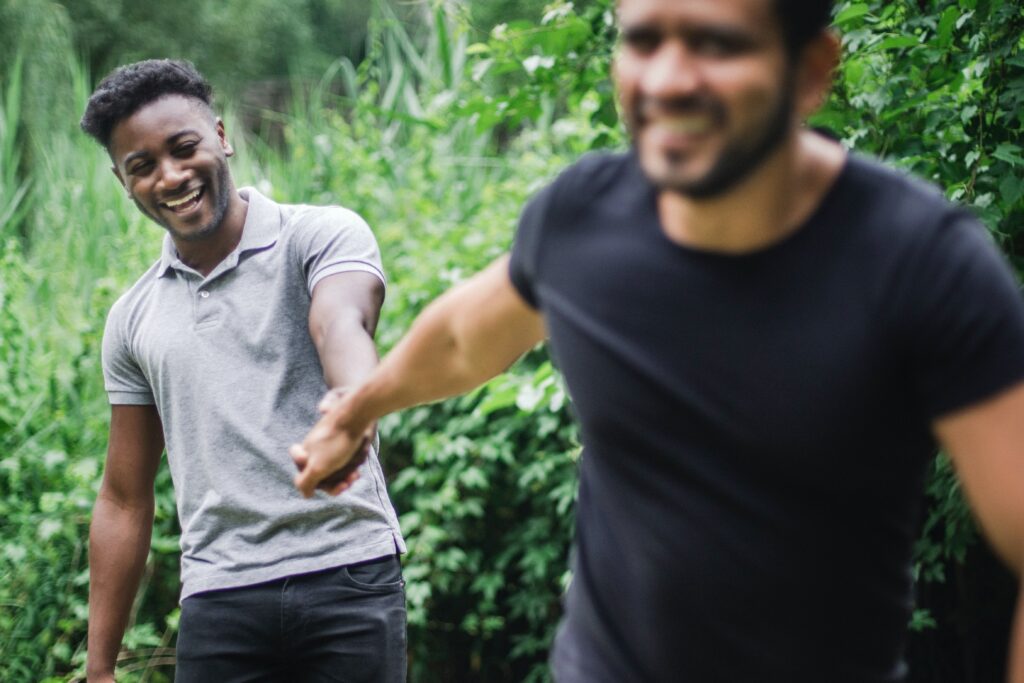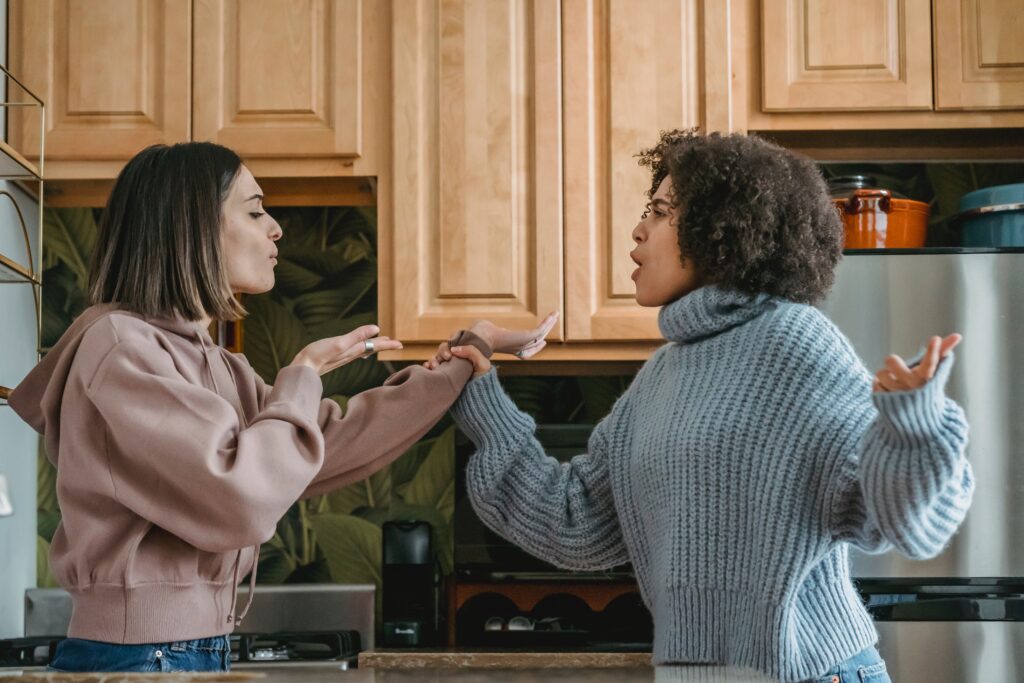The 4 Types of Dependency in Relationships

Are you dependent, codependent, independent, or interdependent? When it comes to relationships, these types of dependency are important to pinpoint in order to get out of possible toxic relationships and build healthier ones.
In certain terms, the types of dependency can be seen as stages that a person goes through as they grow. But sometimes it happens that people get stuck in one of the dependencies and the relationship goes sour.
If you want to know what these dependencies are and what are their signs keep reading.
A disclaimer before we begin, this article is for information and educational purposes only. It is not meant to diagnose or treat anything. If you need help or advice on the subject please contact a mental health or marriage and relationship professional.
Now, here are the 4 types of dependency in relationships.
1. Dependency

Do you find yourself needing to be told in what direction to go all of the time? Have you been described as being too clingy? You may be a dependent person that creates dependent relationships.
In an article for Thrive Global, mental health expert, Dr. Gregory Jantz takes a look at dependent people and the relationships they create.
The first example that Dr. Jantz covers is when a dependent person looks for a “healthy” person that has a good sense of self and enters a relationship with them. A healthy person is attractive to the dependent person because the dependent thinks that the other person will give them the direction they crave since the healthy party has already done it for themselves.
But, as the relationship progresses, the healthy person begins to see that there’s something strange about certain behaviors.
“Words such as clingy, suffocating, or controlling may be used to describe the relationship”, states Dr. Jantz, “When dysfunction becomes too extreme, the so-called normal person will often end the relationship”.
The next type of dependent relationship that Dr. Jantz points to is the relationship between two dependent people, which quickly evaporates due to neither being able to create stability.
“These are extremely shaky”, says Dr. Jantz about relationships between two dependents, “because neither person feels competent or capable to provide direction”.
Now, it is important to know that not all dependent relationships are bad. Take the relationship between parents and their children for example. The child is completely dependent on its parents for everything from emotional to physical needs. In this type of relationship, it is alright for the child to be dependent as it grows and begins to experiment on its own.
The problem comes when one does not develop out of that dependency state and enacts the same patterns on relationships as an adult. This dependency can be caused by various things like a dysfunctional family dynamic, trauma, relationships gone wrong, etc.
No matter what caused the issue in the first place, it is important to seek help from a mental health professional once you have realized that you may be dependent. These patterns can manifest in all types of relationships, not just romantic, and could wreak havoc on all aspects of your life.
2. Codependency

Once the relationship between two dependents ends, Dr. Jantz says that this leaves the dependent vulnerable to people like narcissists, controllers, and people who want their lifestyle enabled like addicts.
“They (the dependents) can be susceptible to people with arrogant and narcissistic personality types who believe they always know the right answer”, says Dr. Jantz in his article, “Certain types of people will seek out a dependent personality because of their need for power and control”.
Dr. Jantz continues, “The dependent person cries out, ‘Please, tell me what to do!’ and the abusive or arrogant person is all too willing to do just that in every situation.”
Codependent relationships are known for the imbalance of power between the two people. Specifically, they are known for having one person controlling or abusing, and the other person following the controller due to people-pleasing tendencies.
But pleasing and control aren’t the only things that codependent relationships are known for. In her article, The Four Dependencies: How To Know If You Are In a Healthy Relationship…Or Not, Debbie Caudle a National Board Certified Counselor, lists several other things that can be seen in codependent relationships.
These are low self-esteem, struggling to say “no” or stand up for yourself, wanting to please or take care of others at the expense of your own health, emotional reactivity, being overly controlling, poor communication skills, lying, a constant need to be with the other person, having your happiness tied up in how that other person treats you and denying that there are problems.
One of the most worrying things about codependent relationships, besides the mental state of the parties, is the almost inevitable fall into abuse whether that be physical, mental, emotional, financial, etc.
Insecurities, low-self esteem, trauma, previous abuse, and little self-confidence are some of the things that create dependency and codependency situations. But, with some work and awareness, you can get out of these relationships and create better ones.
If you identify with some of what is being said in this article and think you are in such a situation please contact a mental health professional to help you.
3. Independency

Do you feel free from outside control, like you don’t have to rely on someone else for what you need any more? This might mean that you have become independent.
Being independent means that you have taken up more responsibilities now, you have developed trust in yourself and know that you can do things on your own, you are making decisions by yourself, being accountable, and trusting your own judgment. Independence is great because you start focusing on yourself, and pushing your own limits to see what else you can do.
You are also learning more and more about yourself each day. This is very necessary to develop healthy relationships in the future and in a way you have to be independent in a relationship in order not to lean on your partner too much. You also have to set boundaries so your partner doesn’t become dependent on you.
But, what happens when this independence is taken to the extreme? If your independence stems from trauma or being hurt by other people, it can turn into something toxic.
Pushing people away because you think you can only rely on yourself, not trusting people because you fear that they will hurt you can prevent you from making connections that you as a human being needs. It will also lead to being overworked, crashing from doing everything yourself, and developing mental illnesses due to the weight of it all.
In relationships, you might give the other person the unspoken message that you don’t need or want them. That they are not needed so they don’t have anything else to do in this relationship. You can also inadvertently tell them that they don’t matter, only you do. This causes arguments and drives people away.
“Staying too long as an independent is dysfunctional arrested development”, says PM Today, a business website, “The heart of the independent is the self-centered ‘I’ and an egoic drive for selfish satisfaction”.
The truth is that, while independence helps us grow, it cannot be the focal point because we cannot do everything ourselves as much as we try to.
“We cannot function alone”, says PM Today, “we need social cohesion and the work of others to thrive”.
If you ever needed an operation, you would seek the help of a doctor who knows what they are doing. You could not do it yourself. It is similar in your daily life, if you are not someone who sows, for example, you would need to go to a store for clothes. For food, you would need to go to a grocery store or a restaurant for that if you are not someone who owns a farm and so on.
The world around us, as well as our relationships, actually thrive on healthy doses of dependence and independence. This is what we know as interdependency.
4. Interdependency

So, what is interdependency? According to an article on VeryWell Mind, interdependency suggests that partners recognize and value the importance of the emotional bond they share while maintaining a solid sense of self within the relationship dynamic.
The basis of creating an interdependent relationship is knowing who you are at the core, having a strong sense of self. Knowing your likes, dislikes, hobbies, and what you want. Also having boundaries is very important in interdependent relationships.
Added to all of that, there has to be a knowing that the other person is also an individual with their own needs and that they should be free to pursue their own personal interests just like you. At the same time, you should also realize that it is alright to need and receive help from that other person.
Both of you have skills that the other one doesn’t and both can benefit from each other in those areas. You do not have to go at it alone all of the time.
“Interdependence involves a balance of self and others within the relationship”, states VeryWell Mind, “recognizing that both partners are working to be present and meet each other’s physical and emotional needs in appropriate and meaningful ways”.
Each person has their own solid foundation and do not demand things from the other nor do they look to the other to fulfill a void of unworthiness.
“Interdependency gives each partner space to maintain a sense of self, room to move toward each other in times of need, and the freedom to make these decisions without fear of what will happen in the relationship”, says VeryWell Mind in their article.
VeryWell Mind continues by stating the characteristics of a healthy interdependent relationship. These are healthy boundaries, active listening, time for personal interests, clear communication, taking personal responsibility for behaviors, creating safety for each other to be vulnerable, engaging and responding to each other, healthy self-esteem, being open and approachable with each other.
For a healthy relationship to take place, you have to look at and heal yourself as well as have things in moderation. It is a journey but with the right help from a mental health professional, it can be achieved.
Do you relate to any of the points mentioned above? Tell us your experiences in the comments. Don’t forget to check out our YouTube channel for more about psychology and relationships. Thanks for reading!
Sources:
Clarke, J., & Snyder, C. (2021, July 26). How To Build a Relationship Based on Interdependence. Verywell Mind. https://www.verywellmind.com/how-to-build-a-relationship-based-on-interdependence-4161249
Jantz, G. (2018, October 7). Are You in a Dependent Relationship? Thrive Global. https://thriveglobal.com/stories/are-you-in-a-dependent-relationship/
Matthews, D. (2019, August 8). Interdependence Over Independence. PM Today. https://www.pmtoday.co.uk/interdependence-over-independence/
Pierce, D. (2019, July 12). The Four Dependencies: How to Know if You’re in a Healthy Relationship. . .or Not. By Divine Design For Women. https://www.bydivinedesignforwomen.com/blog/how-to-know-if-you-are-in-a-codependent-relationship-or-not
Psych2Go [YouTube]. (2021, September 13). 3 Forms of Love #shorts [Video]. YouTube. https://www.youtube.com/watch?v=3gSn4zIzh1o




Responses